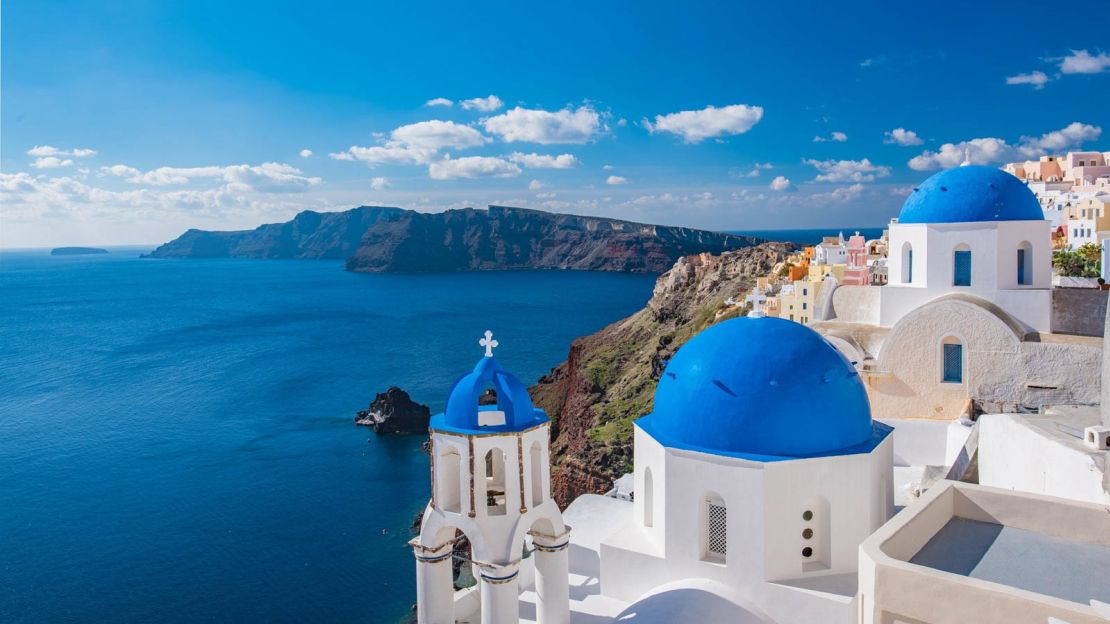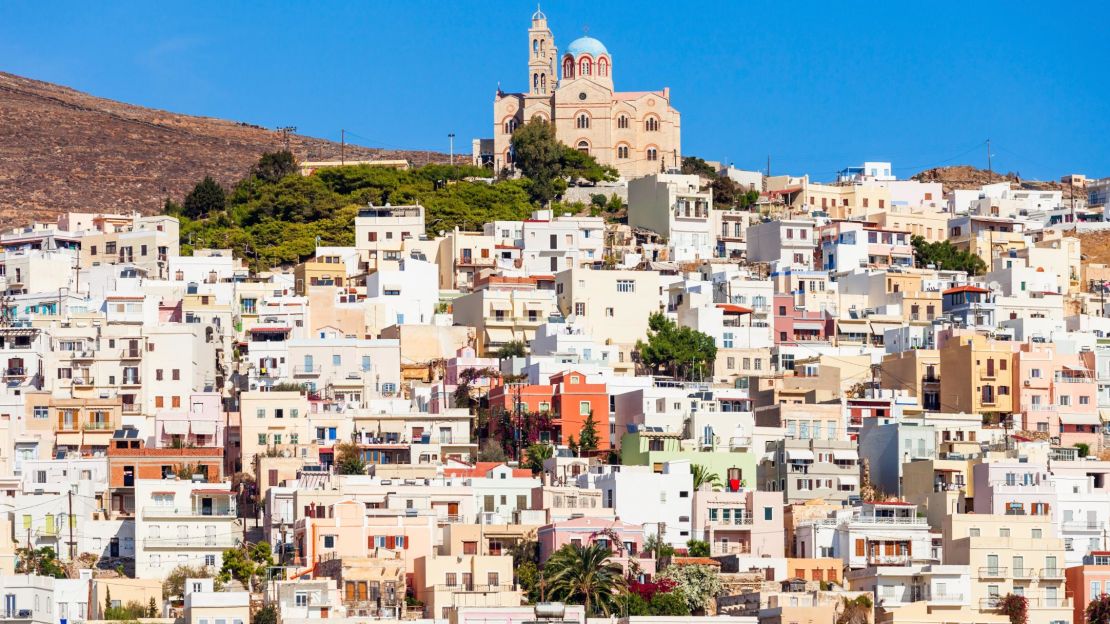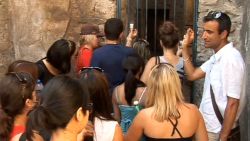Greece’s tourism appeal is no secret, but with most of us still in the midst of the Covid-19 crisis, the idea of spending our summer there can only be a distant dream.
Or maybe not, say Greek officials.
The Mediterranean nation appears to be a rare coronavirus success story.
By enforcing a strict and early lockdown, the country has managed to keep deaths incredibly low – just around 150 so far.
This week, some businesses like hairdressers and bookstores were allowed to re-open for the first time.
And the country’s pragmatic prime minister, Kyriakos Mitsotakis, thinks it may, ever so cautiously, be a model for welcoming back some travelers this summer.
“The tourism experience this summer may be slightly different from what you’ve had in previous years,” Mitsotakis told CNN’s Nic Robertson when they sat down – socially distanced – in his office this week.
“Maybe no bars may be open, or no tight crowds, but you can still get a fantastic experience in Greece – provided that the global epidemic is on a downward path.”
New travel protocols
The top Greek villages to visit
Opening up to tourism inevitably means opening the country up to people potentially carrying the virus, but Mitsotakis hopes current testing regimes can be enhanced to reduce the risk.
At the moment, every international traveler is screened for Covid-19 upon arriving in Athens.
Before CNN’s reporting team even landed in Athens this week, we were asked to complete a form on our flight from Zurich with all our personal information, as well as our seat number – presumably to allow authorities to trace close contacts should someone onboard test positive.
Upon landing in Athens, we were immediately herded into a room where everyone’s throat was swabbed and catalogued.
We got our results back less then 12 hours later (negative, thankfully).
Mitsotakis is hoping for something much more comprehensive. He wants international, or at least European, standards that set the same travel protocols for all countries.
“I would assume that people will be tested before they get on a plane, not after they arrive here.
“They can only get on the plane with a negative test, or with a positive antibody test,” he said.
If all goes to plan, he hopes the country can start welcoming tourists by July 1.
Targeting high-end tourists

Given the amount of effort it will take to get here at a time when airlines – including the low cost carriers that transport most of the country’s foreign air arrivals – have stopped flying most services, Mitsotakis is banking on “more high-end tourists.”
“Yachting, for example, where you have a fewer number of people who are on a boat, and then they go out to eat or buy provisions,” he says.
“Agrotourism, tourism in smaller hotels seems to me to be better suited for this new sort of post-pandemic world.”
The question of when and how to open is no trivial point for a nation that’s been roiled by recession and economic turmoil for more than a decade.
This country’s GDP is at least 20% dependent on tourism, double the global average.
With over 31 million tourists in 2019, three times its population, Greece has more than doubled its number of visitors in 10 years and billions have been invested in services and infrastructure. At least one in four Greeks works in tourism or related industries.
Early forecasts had been projecting a booming year, leading Irene Petrakou and her two brothers to invest in the hotel they run in central Athens.
Opened by their parents in the 1970s, the family business has been their main source of income.
“Early bookings looked good, we decided to renovate,” says Petrakou. “The current situation creates big cashflow issues for us.”
Summer season rescue?

A recent survey by Greece’s Chamber of Hotels shows that 65% of hoteliers who responded fear that they could be pushed to bankruptcy.
City hotels are expected to re-open as of June 1, with seasonal hotels expected to follow up to a month later.
Yet, as Petrakou points out, there is still no clarity on when international flights will resume – a major concern given 90% of Greece’s tourism revenue comes from international visitors.
“The first part of the summer is already lost,” she adds.”Clients with bookings later in the season have a ‘wait and see’ approach, which is good.”
Like many in the industry, Petrakou believes that Greece’s success in containing the virus early is key to the country’s tourism brand surviving this crisis intact and could lead to a quicker recovery.
The Greek prime minister told CNN that the sense of collective success around the country’s fight against Covid-19 will be a legacy he takes away from the crisis.
“And I dare to use the word pride,” he adds. “Greeks haven’t been proud in a long, long time,”
That pride, and what he hopes will be the relative safety of Greece’s Covid-19 strategy thus far, will be a draw this summer.
“It’s good to have these sentiments back. Because of positive feelings, and they will help us to address the big economic crisis that is clearly around the corner.”




























